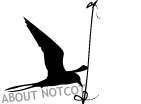Intoxication Season at Kew- 09.20.14
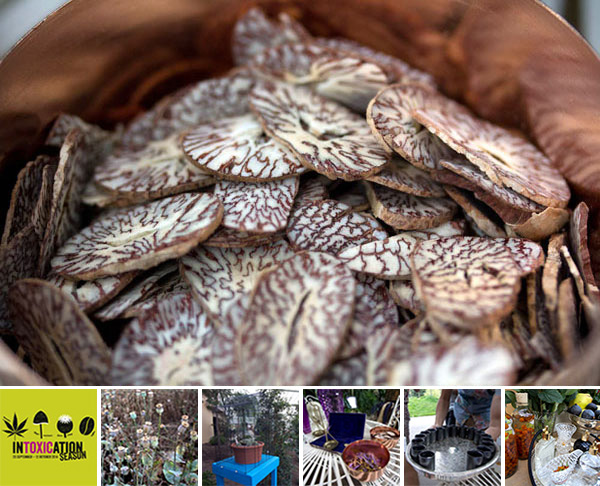 Here’s the latest from NOTCOT’s London-based editor and resident zoologist, Justine Aw.
Here’s the latest from NOTCOT’s London-based editor and resident zoologist, Justine Aw.
Today the The Royal Botanic Gardens, Kew are launching a new exhibition, Intoxication Season. All about mind altering plants and fungi, the month long program offers a chance to discover how plant chemicals can be used as medicines and intoxicants, with some socially acceptable (coffee, tea, alcohol, aspirin), yet others seen as socially unacceptable “drugs” (cannabis, opium and a host of others!). These mind-altering drugs span across cultures and have shaped our lives, founding the basis of entire economies. The same plant chemicals that can be used to create medicines and save human lives can also lead to addiction and death in the wrong doses. The exhibition and series of talks and seminars throughout the season explore these seeming contradictions in our relationship. See it all on the next page.
As a part of the experience, Kew are also inviting visitors to try some of these commonplace as well as rarer mind-altering drugs, such as cider spiced with psychoactive compounds in nutmeg, saffron, chocolate and coffee from The Gin Garden. For those looking for more unusual stimulation, Bompas and Parr offer a Plant Connoisseurs Club offering a chance to taste Guarana, Kola Nut, Betel Nut and Blue Lotus.
Beautiful flowers of Datura (also known as Angel’s Trumpets or moonflowers) which contain tropane alkaloids such as atropine.

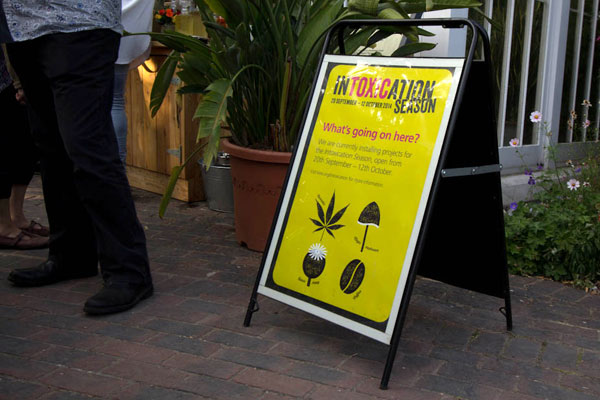
Displaying controlled substances to the public can be a challenge and one Kew manages playfully, locking up specimens like this Peyote in beautiful bird cages. Inviting visitors to take a closer look and question why some must be caged, while others grow free.
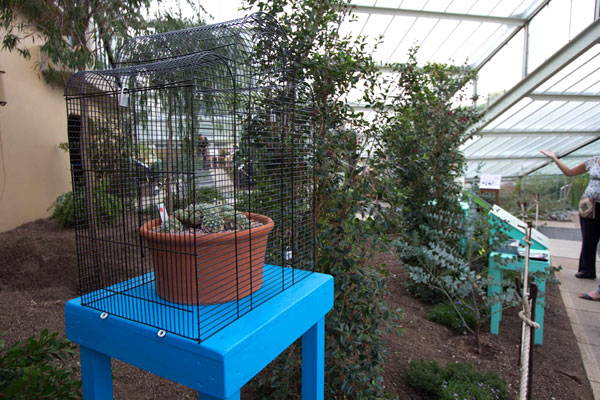
A field of opium poppies.
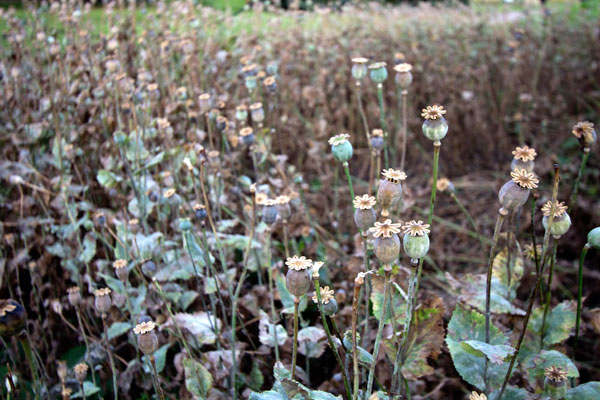
Khat under lock and key. This amphetamine-like stimulant is classified by the World Health Organization (WHO) as a drug of abuse that can produce mild-to-moderate psychological dependence (less so than caffeine and alcohol) and is a controlled substance here, but remains common throughout many African countries.
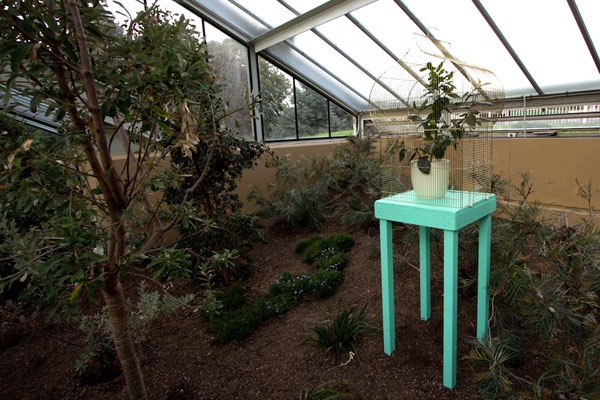
The gardens also house installations to show the workings of mind-altering chemicals.

The installations include work that plant scientists are doing behind the scenes to understand and image these chemicals. Beautiful micrography!
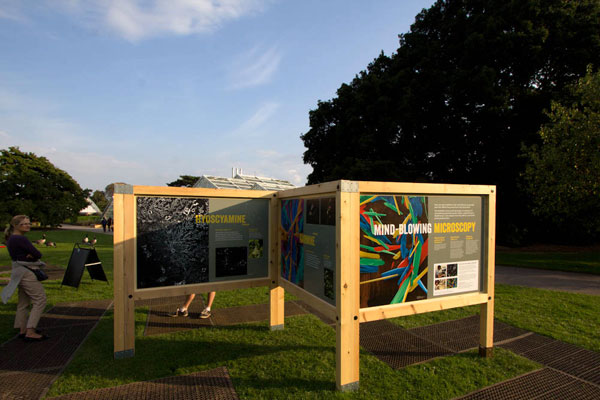
The preview evening began with a lovely cocktail, a familiar intoxicant!
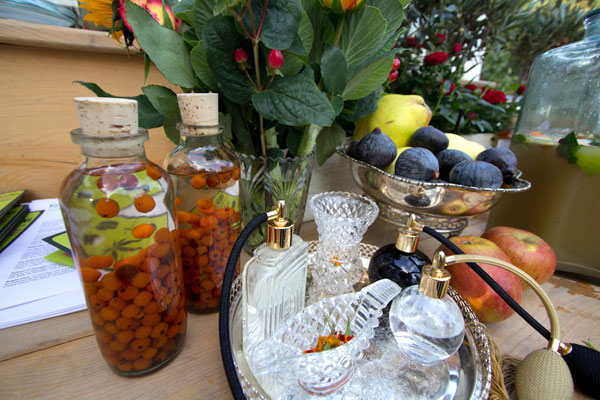
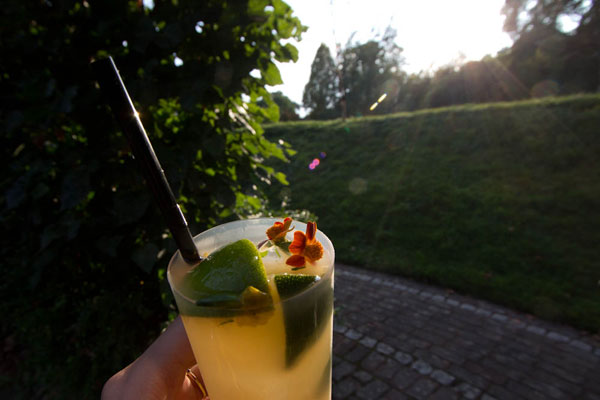
We then joined the Plant Connoisseur Club to find out about the more unusual intoxicants and sample a few ourselves.
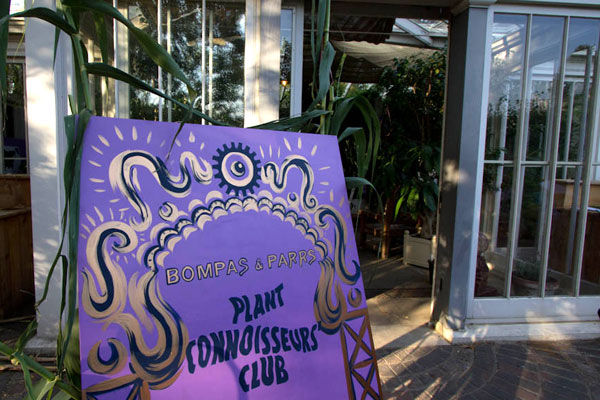
An introduction from Sam Bompas before entering the Secluded Glasshouse.
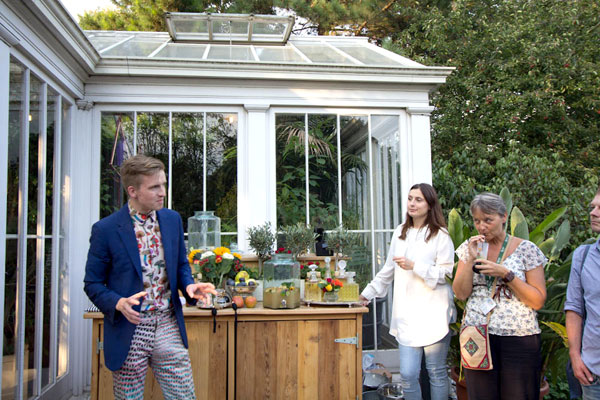
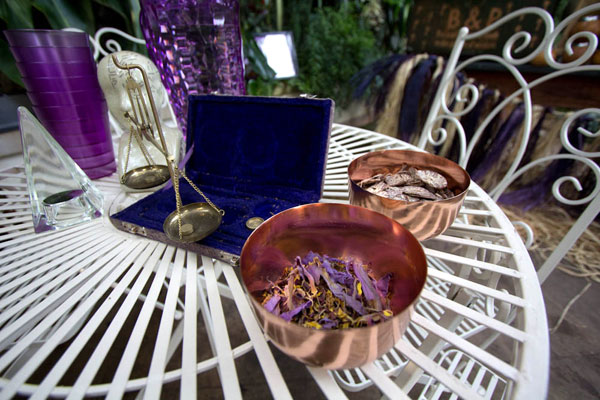
The beautiful interior of the Betel Nut (Piper betle), a mild stimulant that will be on offer for intrepid tasters.
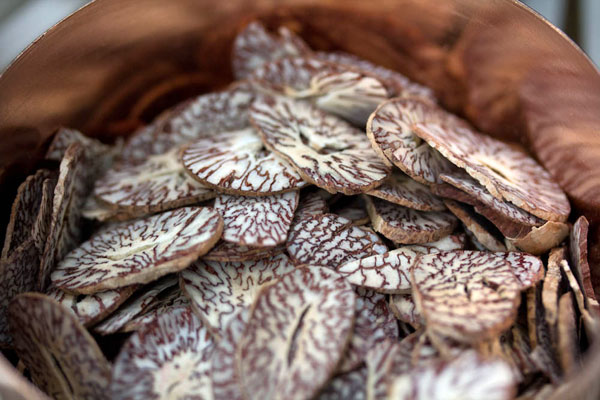
Dried petals of the Blue Lotus. Can’t help but think of TinTin.
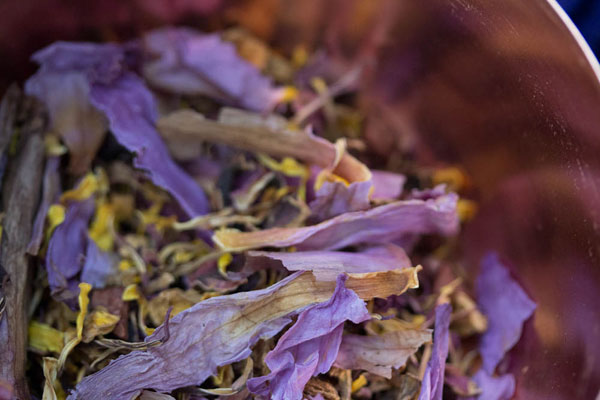
A taste of Blue Lotus tea! An interesting flavor, though I can’t report any hallucinogenic effects. Perhaps we were already stimulated by all of the controversy!
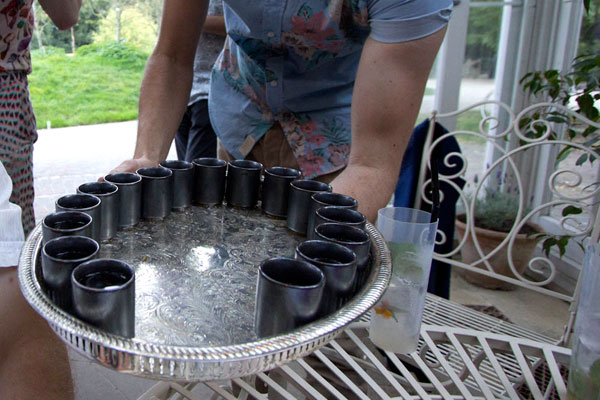
The exhibition opens today and runs until October 12th with tastings each weekend and with a fantastic program of talks, debates and even an open house day to look inside Kew’s Fungarium in October.

